In order to optimally function, there are certain minerals that your skin really needs.
However, not only is the soil all around us now depleted of many minerals due to over-farming, but everything from stress and anxiety to sugar and alcohol are resulting in an increasing number of people being deficient in several minerals.
This can lead to the health of your skin really suffering…
Wondering which minerals your skin is craving?
Here are 8 minerals that can really help to boost the health, vitality and general appearance of your skin.
Potassium
Research shows that those who have a lower-than-average amount of potassium in their diet tend to experience deeper wrinkles than those who are consuming enough of this vitamin.
Why is this?
Because potassium is largely responsible for regulating the moisture content of your skin cells. Without enough potassium, your skin ends up losing too much water, resulting in dryness and dehydration. Since dry skin is less supple and elastic, this quickly exacerbates the development and severity of wrinkles.
Another reason as to why a lack of potassium contributes to skin aging is the fact that potassium contains antioxidant properties. Antioxidants are key when it comes to fighting free radicals and slowing down the aging process.
One more thing you should understand about the importance of potassium…
You have likely heard of potassium being referred to as an electrolyte before.
What does this mean?
That it contains an electric charge, and this is needed in order for the cells in your body, including your skin cells, to work to their full potential.
Zinc
Zinc is referred to as a trace mineral, because you only need a small amount of it each day.
Think that means you’re covered when it comes to zinc?
Think again…
Zinc deficiencies are extremely common, affecting around two billion people worldwide. These may not be severe, but this only means that you don’t often realize that the smaller skin problems you are experiencing are down to a zinc deficiencies.
What are the skin symptoms for a zinc deficiency?
They range from acne to eczema, making it difficult to ascertain whether or not it is a lack of zinc causing the problem.
Nevertheless, giving your skin some extra zinc won’t hurt, as zinc performs a number of important functions within the skin, including:
- Regulating oil production, preventing excess oil from being produced
- Controlling the hormones that can cause acne, with zinc supplements often being used as an anti-acne treatment
- Antioxidant properties to protect against skin aging
- Anti-inflammatory properties
- Heals and rejuvenates the skin, promoting skin cell regeneration while strengthening skin cell membranes
Sulfur
The third most abundant mineral in the body, sulfur can be found in every cell, but your skin is home to an even larger proportion of this important mineral.
Just like with zinc, sulfur deficiencies are common, and, just like with zinc again, the skin symptoms of a deficiency are so varied. They include everything from acne and rosacea to eczema and dermatitis.
What does sulfur actually do for the skin?
A number of things, such as:
- Fights bacteria on the surface of the skin
- Prevents the skin from producing too much sebum
- Encourages the shedding of dead skin cells, helping to keep pores clear of blockages and making it a natural exfoliant
- Prevents and heals skin damage
- Boosts collagen production, helping to strengthen skin while keeping wrinkles and fine lines at bay
As you can see, sulfur is especially effective at targeting acne. In fact, it has been used as an acne treatment as far back as 1949.
Is there anyone who should stay away from skin care products containing sulfur?
Yes. Due to the way in which sulfur slows down your skin’s production of oil, using this mineral topically may end up exacerbating dry or sensitive skin.
Wondering if sulfur been taken orally too?
Yes, supplements are available, or you can also increase your consumption of the following sulfur-rich foods:
- Organ meats, such as liver and kidney
- Grass-fed cow’s milk
- Cheddar and parmesan cheese
- Apricots and peaches
- Leafy green vegetables
Magnesium
Did you know that around 80% of the population worldwide is deficient in magnesium?
This is a shocking statistic, especially when you take into account that magnesium plays a key role in more than 300 of the biochemical reactions that occur within the human body, and is present in just about every tissue.
Not only is magnesium important for everything from heart health to digestion, but it also has an impact when it comes to the health and appearance of your skin.
How?
One of its key roles is supporting the fatty acids in the skin. These are important for keeping your skin’s outer protective layer strong. Without enough magnesium, your protective layer weakens, and this not only means that moisture evaporates out of your skin faster, but also that bacteria and other unwanted substances are able to enter into your skin.
By keeping the skin strong and helping it to retain moisture, magnesium plays a huge role in preventing wrinkles and dryness, keeping the skin soft, supple and youthful.
In addition to being able to treat dry skin, magnesium can also help with acne, making it a mineral that all skin types can utilize.
One popular way of treating your skin with magnesium is through the use of Epsom salts. Although these are called a salt, they are actually a magnesium sulfate compound, and can be added to a warm bath so that your entire body can benefit from their magnesium content.
In addition to providing your skin with magnesium topically, you can also include more of this mineral in your diet, with foods such as:
- Leafy greens, such as kale and spinach
- Avocados, bananas and figs
- Black beans, kidney beans and chickpeas
- Salmon, mackerel and tuna
Silica
Do you want wrinkle-free skin?
It’s likely that your answer is yes, meaning that silica is a mineral you need to know about.
Why?
Because even though it may be a trace mineral, meaning that you don’t need much of it, silica is the main mineral when it comes to skin elasticity.
A silica deficiency may not be visible at first, but it will lead to a rapid loss in elasticity, resulting in fine lines, wrinkles, and sagging skin much earlier than you would have otherwise experienced them.
Silica also contains anti-inflammatory properties, making it effective at combating everything from psoriasis to acne.
One more important role of silica is…
The way in which it enables your red blood cells to carry 20% more oxygen. This not only increases the amount of oxygen delivered to your skin cells, but also the amount of nutrients, both of which will give your skin a beautiful natural glow.
While your body produces silica itself, the rate at which it does so begins to decline by your mid 20s, making it important for you to ensure that you keep your silica levels topped up.
Wondering which foods contain silica?
The best sources include:
- Whole grain bread and pasta
- Oatmeal and oat cereals
- Brown rice
- Bananas
- Mangos
- Green beans and spinach
Copper
While copper may not be quite as essential as some of the other minerals on this list, its benefits are being increasingly recognized, which is why you will likely be seeing more and more skin care products containing a form of copper.
There are several new studies that have been carried out on copper, all thanks to one study that found that a topical gel containing the mineral was able to speed up wound healing by up to three times. Research has also found that, when applied topically, this mineral is suitable for all skin types.
You are probably wondering…
What does copper actually do for the skin?
Well, in addition to speeding up the rate at which your skin cells heal, it also:
- Reduces inflammation
- Repairs DNA damage in skin cells
- Increases collagen and elastin production, with one study finding that it works even better at this than vitamin C and retinoic acid
The copper that you will find in skin care is usually in the form of copper peptides, with this version of the mineral being easily absorbed by the skin.
Selenium
Selenium is an essential mineral that is most touted for its antioxidant benefits.
This makes it key when it comes to preventing premature aging.
How does it do this?
By neutralizing the free radicals in the body, preventing them from destroying the skin’s collagen and elastin.
Here are just a few of the other benefits that selenium has when it comes to the skin:
- Reduces inflammation
- Protects against cell damage caused by UV rays
- Prevents hyperpigmentation
- Fights skin infections
- Reduces the risk of developing skin cancer
It is actually quite difficult to consume enough selenium through your diet, and since your skin is usually the last organ to receive the nutrients you eat, this leaves your skin craving this mineral.
Applying topical products that contain selenium can be a solution to this, while taking oral selenium supplements can also help. Oral supplements will mean that you are able to enjoy the additional health benefits of selenium too, consisting of everything from a stronger immune system to protection against heart disease.
Calcium
You are likely already quite familiar with calcium, with this mineral being famous for its important role when it comes to the health of bones and teeth.
However, what many do not realize is that calcium also has a direct impact on the skin too…
The majority of the calcium in your skin can be found in the epidermis, which is the outermost layer of your skin. This part of your skin is extremely important when it comes to skin health.
Why?
Well, to begin with, a healthy epidermis means that your skin will be able to properly retain water, while also remaining protected from environmental damage. This is why extra calcium is usually recommended for those who suffer from eczema or chronic dry skin.
The calcium in your epidermis is also key when it comes to skin cell regeneration. The calcium helps to regulate how quickly your body creates new skin cells, as well as how quickly it sheds away any dead skin cells.
This is a process that naturally begins to decline with age, making it important to keep your skin supplied with all the minerals it needs in order to carry this function out properly.
If your skin cell regeneration rate slows down…
You will end up with a build-up of dead skin cells on the surface of your skin, resulting in a complexion that is rough, dry and dull.
One more benefit of calcium is…
The way in which it encourages the skin to produce sebum. Research has shown that those who do not have enough calcium in the skin don’t produce enough sebum, leaving them with dry skin.
As you already know, dry skin is much more prone to wrinkling, making calcium a mineral you should consider when it comes to anti-aging.
Calcium is another mineral that can be consumed as oral supplements, as well as applied topically.
Of course, in addition to this, you can also try incorporating more calcium into your diet, from sources such as:
- Dairy products
- Leafy greens, such as broccoli and cabbage, with the exception of spinach
- Soybeans, soya drinks and tofu
- Nuts
- Fortified bread or other fortified flour products
- Fish where the bones are consumed too, such as with sardines
It is important to be aware of the different minerals that your skin needs, so that you can recognize the signs of a deficiency early on. Each of these eight minerals is key when it comes to skin health, so make sure that you are providing your skin with a constant supply of these, both internally as well as externally.


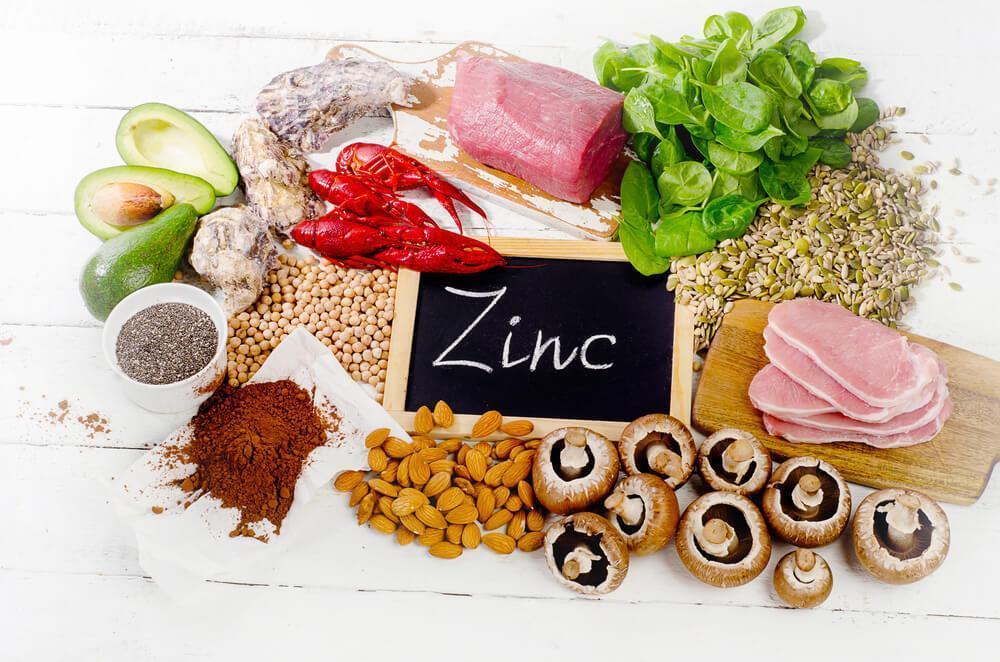
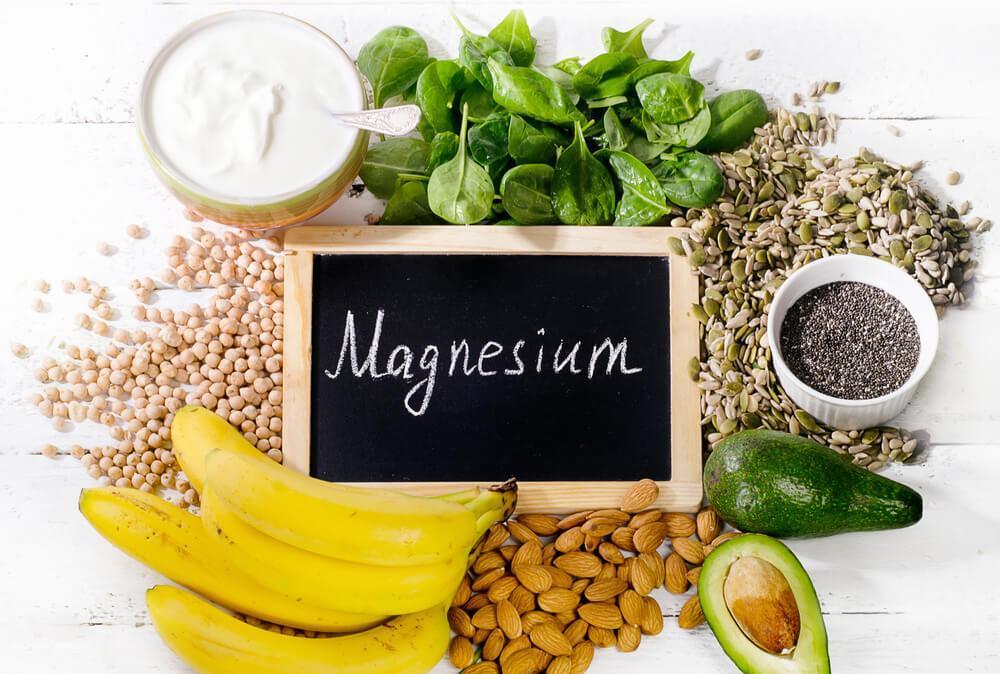
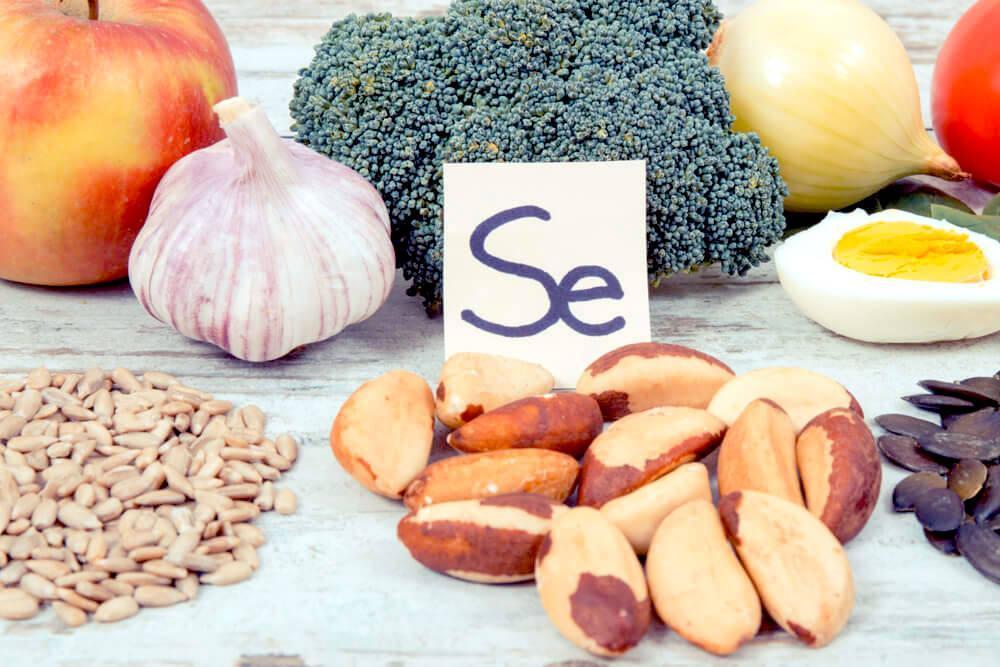

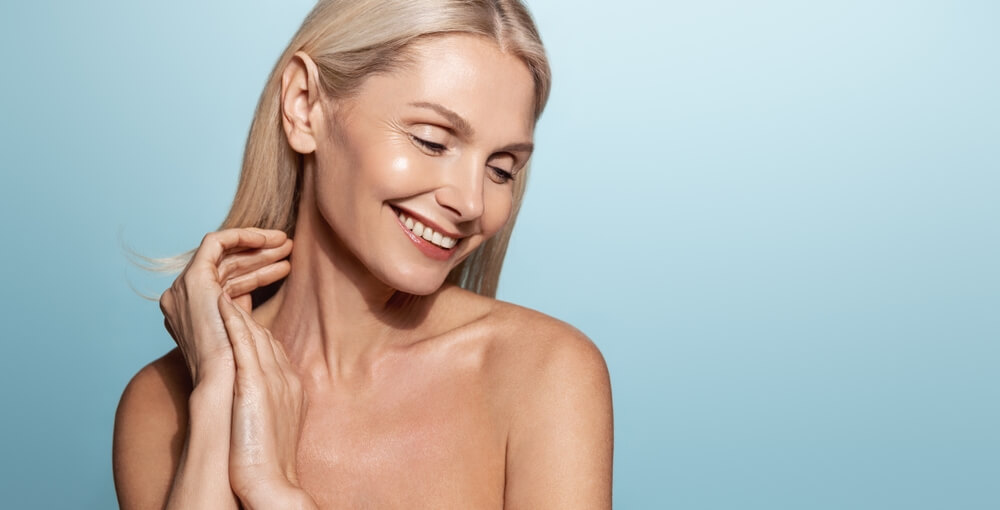
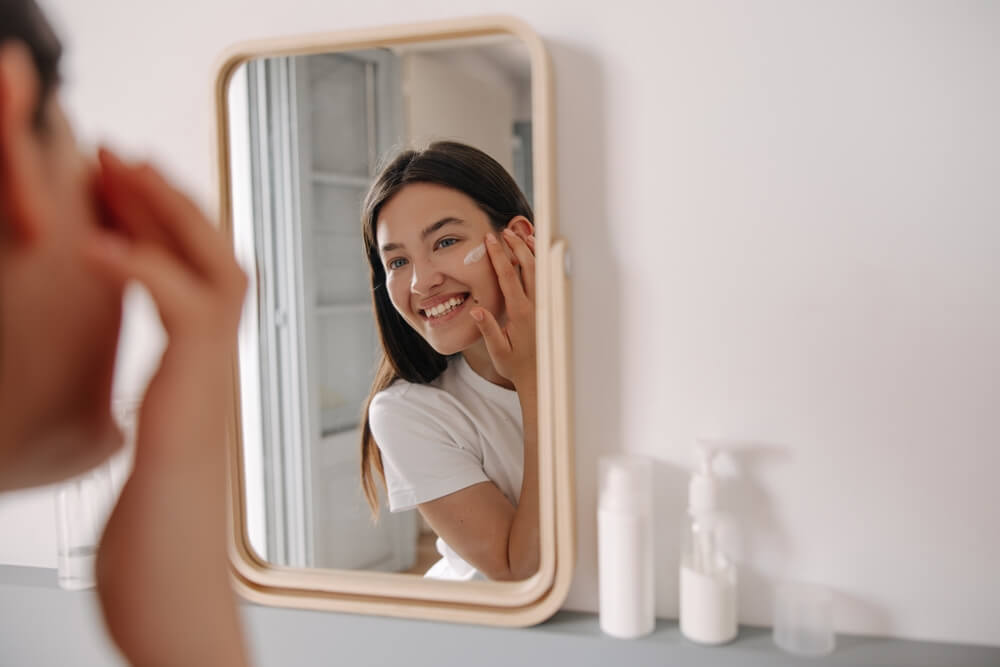

Leave A Comment